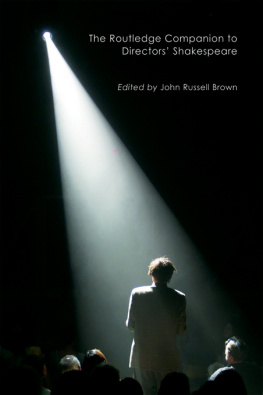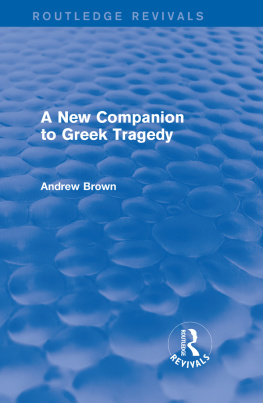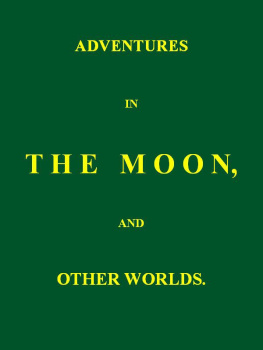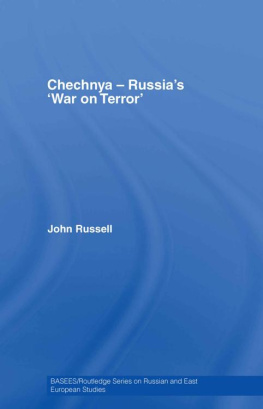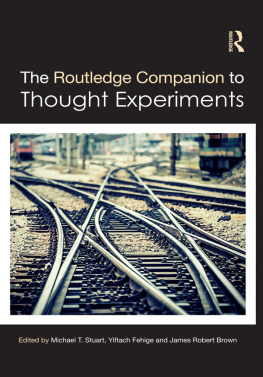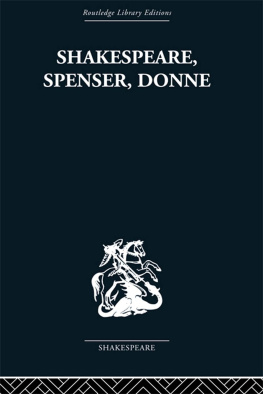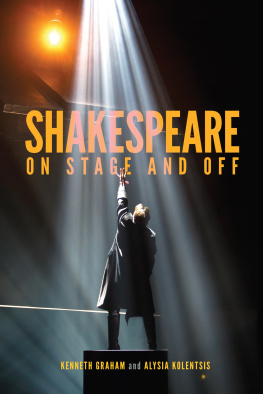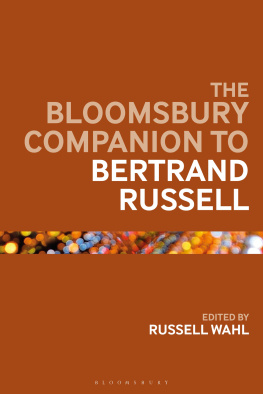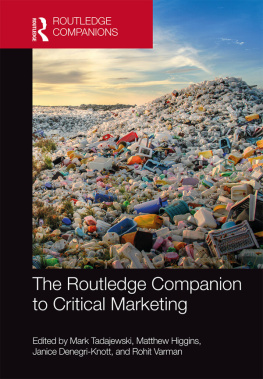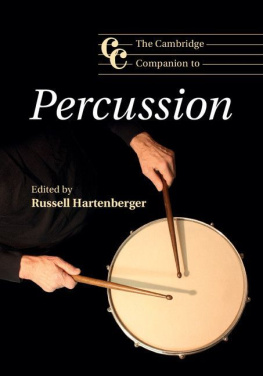John Russell Brown (editor) - The Routledge Companion to Directors Shakespeare
Here you can read online John Russell Brown (editor) - The Routledge Companion to Directors Shakespeare full text of the book (entire story) in english for free. Download pdf and epub, get meaning, cover and reviews about this ebook. year: 2008, publisher: Taylor and Francis, genre: Detective and thriller. Description of the work, (preface) as well as reviews are available. Best literature library LitArk.com created for fans of good reading and offers a wide selection of genres:
Romance novel
Science fiction
Adventure
Detective
Science
History
Home and family
Prose
Art
Politics
Computer
Non-fiction
Religion
Business
Children
Humor
Choose a favorite category and find really read worthwhile books. Enjoy immersion in the world of imagination, feel the emotions of the characters or learn something new for yourself, make an fascinating discovery.
- Book:The Routledge Companion to Directors Shakespeare
- Author:
- Publisher:Taylor and Francis
- Genre:
- Year:2008
- Rating:3 / 5
- Favourites:Add to favourites
- Your mark:
- 60
- 1
- 2
- 3
- 4
- 5
The Routledge Companion to Directors Shakespeare: summary, description and annotation
We offer to read an annotation, description, summary or preface (depends on what the author of the book "The Routledge Companion to Directors Shakespeare" wrote himself). If you haven't found the necessary information about the book — write in the comments, we will try to find it.
The Routledge Companion to Directors Shakespeare — read online for free the complete book (whole text) full work
Below is the text of the book, divided by pages. System saving the place of the last page read, allows you to conveniently read the book "The Routledge Companion to Directors Shakespeare" online for free, without having to search again every time where you left off. Put a bookmark, and you can go to the page where you finished reading at any time.
Font size:
Interval:
Bookmark:

The Routledge Companion to Directors Shakespeare is a major collaborative book about plays in performance. Thirty-one authoritative accounts describe in illuminating detail how some of theatres most talented directors have brought Shakespeares texts to the stage. Each chapter has a revealing story to tell as it presents new and revitalising approaches to the most familiar works in the English language.
A must-have work of reference for students of both Shakespeare and theatre, this book presents some of the most acclaimed productions of the last hundred years in a variety of cultural and political contexts. Each entry describes a directors own theatrical vision and methods of rehearsal and production. These studies chart the extraordinary feats of interpretation and innovation that have given Shakespeares plays enduring life in the theatre.
Notable entries include: Ingmar Bergman, Peter Brook, Declan Donnellan, Tyrone Guthrie, Peter Hall, Fritz Kortner, Robert Lepage, Joan Littlewood, Ninagawa Yukio, Joseph Papp, Roger Planchon, Max Reinhardt, Giorgio Strehler, Deborah Warner, Orson Welles and Franco Zeffirelli.
John Russell Brown is Visiting Professor of Theatre at Middlesex University. For fifteen years he was Associate Director of the Royal National Theatre, and he has also chaired the Drama Panel of the Arts Council of Great Britain. He is author of numerous works on Shakespeare, including New Sites for Shakespeare (Routledge 1999) and Shakespeare and the Theatrical Event (2002), and is editor of The Oxford Illustrated History of Theatre (1995) and Routledges new Theatres of the World series.
Edited by John Russell Brown

First published 2008
by Routledge
2 Park Square, Milton Park, Abingdon, Oxon OX14 4RN
Simultaneously published in the USA and Canada
by Routledge
270 Madison Ave, New York, NY 10016
Routledge is an imprint of the Taylor & Francis Group, an informa business
This edition published in the Taylor & Francis e-Library, 2009.
To purchase your own copy of this or any of Taylor & Francis or Routledges collection of thousands of eBooks please go to www.eBookstore.tandf.co.uk.
Collection and editorial matter 2008 John Russell Brown; individual chapters, the contributors
All rights reserved. No part of this book may be reprinted or reproduced or utilised in any form or by any electronic, mechanical, or other means, now known or hereafter invented, including photocopying and recording, or in any information storage or retrieval system, without permission in writing from the publishers.
British Library Cataloguing in Publication Data
A catalogue record for this book is available from the British Library
Library of Congress Cataloging-in-Publication Data
The Routledge companion to directors Shakespear/edited by John Russell Brown.
p. cm.
Includes bibliographical references and index.
1. Shakespeare, William 15641616 Dramatic production. 2. Shakespeare, William, 15641616 Stage history 1950-I. Brown, John Russell.
PR3100.R68 2008
792.95cd22
2007028261
ISBN 0-203-93252-8 Master e-book ISBN
ISBN10: 0415400449 (hbk)
ISBN10: 0203932528 (ebk)
ISBN13: 9780415400442 (hbk)
ISBN13: 9780203932520 (ebk)
Many conversations with colleagues and associates have contributed to planning this book, and new contacts were made during its commissioning. I am most grateful for this good fellowship that has greatly enhanced the value of the book while lightening my task, compensating for my limitations and helping me to decide which directors to include and which authors to enlist. While directors Shakespeare has been the topic of more conversations and exchanges of information than I can possibly remember, I know very well that over the course of several years the book has greatly benefited from these interactions. For help with more specific issues, I am especially indebted to those who became contributors and, among those who were not free to join as authors, to Arnold Aronson, John Bradby, Graham Bradshaw, Yuli Dubov, Paul Edmondson, Maik Hamburg, Alex Huang, Barbara Hodgdon, Wilhelm Hortmann, Dennis Kennedy, Ric Knowles, Wilmar Sauter, Robert Smallwood, Uchino Tadashi, Kate Wallis, Stanley Wells and Hersh Zeifman. Once the writing was in hand, discussions with contributors covered not only the content and presentation of their individual entries but also larger questions about the nature of directing and performance, and about the functions of textual and interpretative criticism. Our frequent communication also established the form of individual entries and of their chronologies and bibliographies. I am especially grateful for all the help the contributors have given.
At the publishers, Talia Rodgers has supported and guided the project from the start and, during the past few years, Minh-Ha Duong has fielded questions and handled the copy promptly and efficiently. As the typescripts moved towards becoming a book, I was most grateful for the expertise and patient, willing care of Liz ODonnell and Katie Young.
JOHN RUSSELL BROWN
June 2007
This Companion is a new resource for students of both Shakespeare and theatre. Close and detailed accounts of leading directors at work show how varied productions of Shakespeare have been and how theatre has met the challenges of new times and new technology. The concentration on Shakespeares plays, especially those most frequently produced, brings contrasting intentions and methods into clear focus. Although the directors have worked in very different contexts and over the course of many years, their opportunities and problems will have had much in common so that their achievements are more comparable than if the whole range of their productions were being considered. As an individuals work changes over the years, a reader may discover what the directors have learned from working on Shakespeare and some of the inherent and enduring qualities of the texts. Attention is repeatedly drawn to dramatic structure and development, to theatres visual, physical, temporal and aural elements and to opportunities in the text for actors to heighten or control an audiences awareness all elements of performance which are not immediately apparent on the page or readily understood without the test of rehearsal and performance.
Directors, as they are known today, had no role in theatre before the end of the nineteenth century, but as they learnt how to draw a complicated production towards completion they became key persons in its creation: its instigators, inspiration and leaders. They are persons who meet a text head-on in all its many characteristics, both the obvious and those that are hidden until the dialogue becomes part of a performance. This book contains stories about how each of its thirty-one directors have brought the texts to life on stage, the difficulties they have overcome or avoided, their growth in ability, understanding, control and confidence, and the additions, omissions, special emphases and interpretations that have served personal visions and the time and place of performance. And so, besides being a work of reference, this book is also a collection of theatre stories that can be read either from cover to cover or starting wherever interest is caught.
Next pageFont size:
Interval:
Bookmark:
Similar books «The Routledge Companion to Directors Shakespeare»
Look at similar books to The Routledge Companion to Directors Shakespeare. We have selected literature similar in name and meaning in the hope of providing readers with more options to find new, interesting, not yet read works.
Discussion, reviews of the book The Routledge Companion to Directors Shakespeare and just readers' own opinions. Leave your comments, write what you think about the work, its meaning or the main characters. Specify what exactly you liked and what you didn't like, and why you think so.

